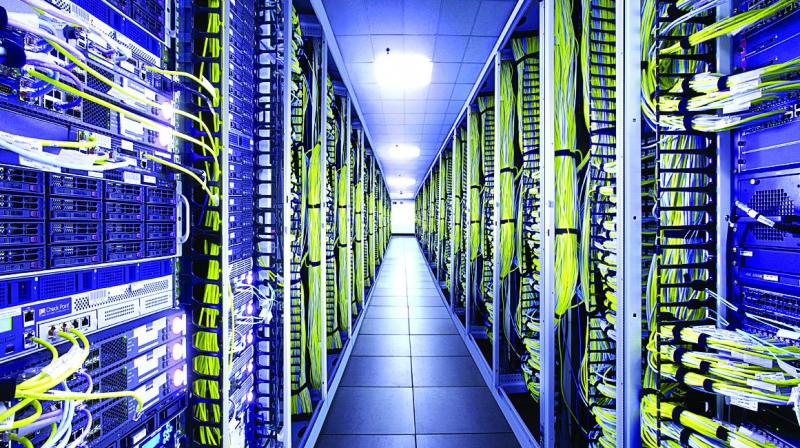Facebook urges India to share data, not hoard it

New Delhi: Countering richest Indian Mukesh Ambani, Facebook on Thursday said data is not the new oil, and countries like India should allow its free flow across borders instead of attempting to hoard it as a finite commodity within national boundaries.
Facebook Vice-President, Global Affairs and Communications, Nick Clegg said data sharing is crucial for national security as India right now finds itself "locked out" of major global data-sharing initiatives aimed to clamp down on serious crime and terrorism.
India should create a new template for the internet that "respects the rights of individuals to choose what happens to their data; one that encourages competition and innovation; and one that remains open and accessible for everyone," he said.
Chairman of Reliance Industries Mukesh Ambani had stated that "data is the new oil" as he propagated the protection of Indian users' data generated through use of internet as well as social media platforms, saying the country's data must be controlled and owned by Indian people and not by corporates, especially global corporations.
"There are many in India and around the world who think of data as the new oil — and that, like oil having a great reserve of it held within your national boundaries, will lead to surefire prosperity.
But this analogy is mistaken," Clegg said at an event here.
"Data isn't oil — a finite commodity to be owned and traded, pumped from the ground and burned in cars and factories. Of course, no analogy is perfect, but a better liquid to liken it to is water, with the global internet like a great borderless ocean of currents and tides," he said.
The value of data, he said, comes not from "hoarding it" or trading it like a finite commodity, but from allowing it to flow freely and encouraging the innovation that comes from that free flow of data — the algorithms and the services and the intelligence that can be built on top of it.
"It is that innovation that has the potential to bring much greater wealth to India — and it is that innovation that will place India, with its entrepreneurial society and its bedrock of engineering talent, at the forefront of the global internet for decades to come," he said.
Clegg said to contain data within geographical boundaries and restricting its flow outside the country would be to "turn this great ocean of innovation into a still lake."
"The global internet is built on this principle of cross-border data flows — just as the global economy relies on capital, human resources and technological innovation to cross borders in order to flourish," he said.
Stating that it was not just the global economy that relies on data sharing across borders, he said data-sharing was crucial for national security too.
"Yet, right now India finds itself locked out of major global data-sharing initiatives aimed to clamp down on serious crime and terrorism, like the Clarifying Lawful Overseas Use of Data (CLOUD) Act and the Budapest Convention on Cyber Crime," he said.
The remarks came amid a raging debate in the country over whether data of Indians is safe with foreign companies, as the government is working on crafting data protection rules. The Reserve Bank of India last year imposed data localisation norms on foreign fintech companies to locally store the data of Indians.
Facebook, which is looking at launching payment services through its unit WhatsApp in India, and global firms such as Mastercard, Visa, PayPal, Google and Amazon had sought relaxation in the regulation on data localisation.
India is home to 400 million WhatsApp users and more than 328 million Facebook users.

